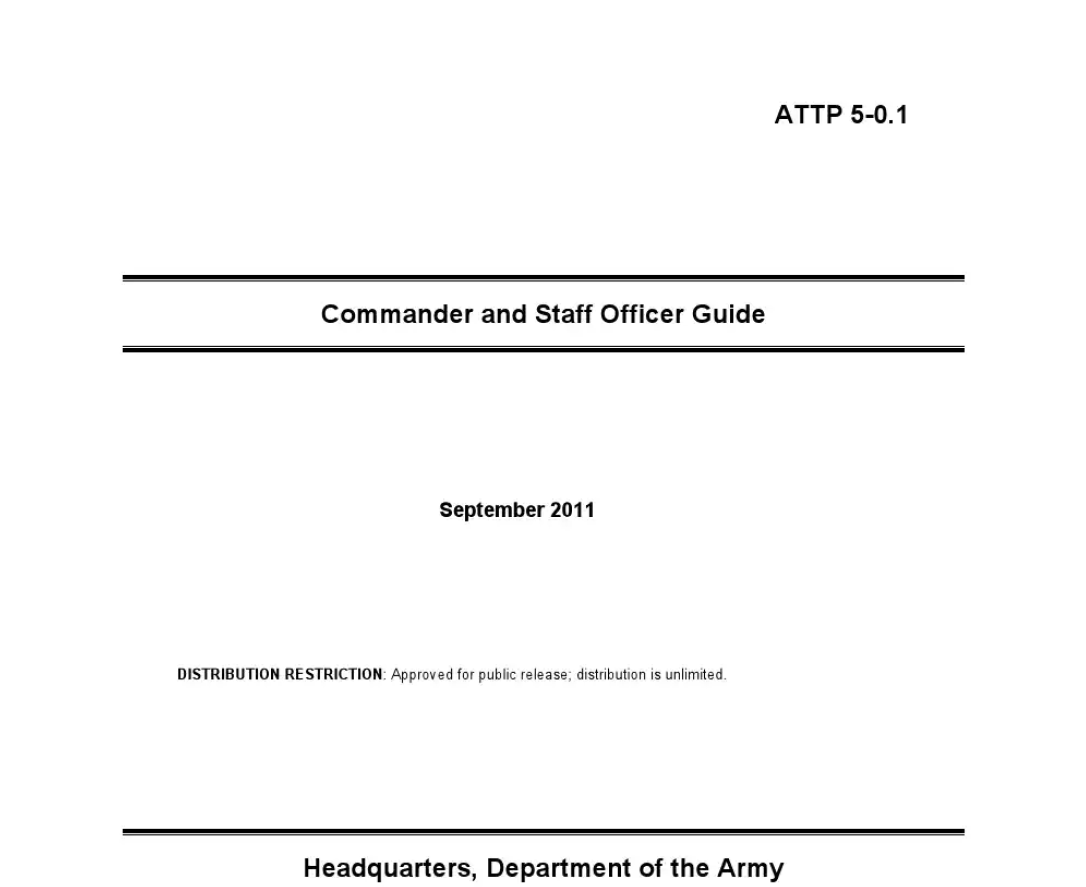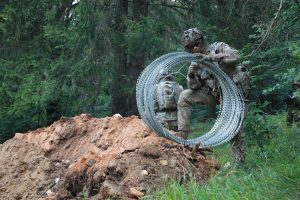Staff isn’t Purgatory: Three Rules

“Ryan, you will be moving to the S4 in 90 days,” my Battalion CDR said to me as we met in Afghanistan for the first time. I was an Executive Officer in the Forward Support Company (FSC) and deployed advanced echelon (ADVON) for the battalion. “What did I do wrong”, I thought. This was my second deployment with the FSC, and I had been part of the year-long train up to this deployment. I wanted to be with our company, not sitting on battalion staff. It turned out to be a great learning experience and set me up for future success.
As you come out of a leadership position either as a CDR or platoon leader, inevitably a staff position is in your future. You can look at this either as a punishment or a unique opportunity to continue to lead your organization. Yes, staff is a thankless job, but I would argue that your impact is felt more at the squad and platoon level than ever before in your career. Using the three rules below will help you not only survive but thrive in staff, preparing you for your next direct leadership role.
Come with an open mind, ready to learn, and be flexible. As a logistician at the company level, I thought my only mission was getting stuff to the point of need on time. Being on a battalion staff, I learned about operations, signal, and intelligence; to name a few. This helped me understand other branches and what they bring to the tactical fight. Getting away from the computer, I visited other staff sections for face-to-face discussions. This allows you to build relationships and understand what each section does for the CDR and the Soldiers of the battalion/brigade.
I found these fellow staffers enjoy what they do and want to tell you all about it. These leaders are more than willing to help you before something is an emergency. Learning that the Public Affairs Officer (PAO) is more than just posting pictures on social media and the comptroller (S8/funding) really has a thankless job trying to balance the budget. This helps you not only do your current duties but learn when eventually you will have to lead a diverse staff as a BN/BDE XO.
Expect delayed gratification or nothing at all. As a direct leader- Company CDR or platoon leader- you can quickly turn the direction of your formation seeing immediate results of your decisions. Being on staff you are an indirect leader- most importantly influencing others without being directly in the chain of command. This is not a simple position to be in as a junior leader, but you can do it. Don’t expect a platoon leader or company commander to tell you thanks for the guard detail tasker but try to give them the rationale behind your actions.
By clearly understanding that your task and role, no matter how trivial it may seem, is important and needed. Watching a tasker move from paper order to physical movement is a rewarding experience. Taking ownership and pride in your work and understand that no matter how minuscule (hail/farewell, organizational day, etc) your work helps the overall health and readiness of the formation.
Your higher headquarters is working to support you. Everyone has been there, S3 drops a FRAGO on a Friday for execution on the following Monday morning. “What the heck are those guys doing up in higher HQ,” you think. Being on the other side of the equation- the tasking authority- demands transparency and constant communication with both your higher level (BDE/DIV) and lower (BN/Company). You can be an asset to your higher HQ by being a scout for those other units both vertically and horizontally. Look for problems and create some options. Getting out of the office and visiting other staff sections leads to building relationships and quickly reduces confusion during times of limited communication or short fuse taskers. Having these relationships helps when you need to push back on a tasker or a last-second no-fail mission that comes up. Remember they are just like you- either biding time until they can take on that next leadership position or trying to keep their boss informed and keep the organization running.
ATTP 5-0.1 (September 2011) defines the following characteristics of staff officers: competent, full of initiative, able to apply critical and creative thinking, adaptive, flexible, self-confident, cooperative and communicative. These words are relevant and true, but the right mindset and ability to be humble will carry you to a successful and rewarding time on staff. Remember, we have all been there and will be there at some point in our careers. Enjoy your time, learn how things work outside your branch, and most importantly have fun and put a smile on your face. Having a positive mindset will always win the day regardless of conditions.
MAJ Stone is a proud logistical officer and has served several staff positions from assistant S4 to support operations officer (SPO). He currently is a “staffer” including his current role as an Army Special Operations liaison to a COCOM. He is passionate about two things- family and forging positive professional development of all current and future Army officers.
Related Posts

Going Off Script, But Staying on Track: A Career Guide for Junior Leaders
Intro I walked into LTC Tomi King’s office as a new 2LT in his formation. We discussed all the normal talking points in that initial counseling – family, where I …

Fighting as an Enabler Leader
(U.S. Army Photo by Cpl. Tomarius Roberts, courtesy of DVIDS)Enablers provide capabilities to commanders that they either do not have on their own or do not have in sufficient quantity …

Defeating the Drone – From JMRC’s “Skynet Platoon”
If you can be seen, you can be killed—and a $7 drone might be all it takes. JMRC’s Skynet Platoon discuss their TTPs to defeat the drone.
